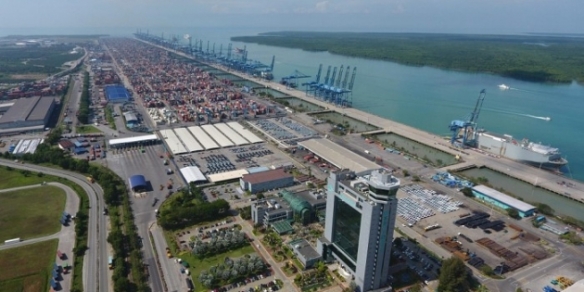Malaysia: Unicorn Nation – hustlers wanted
By Dr V. Sivapalan February 27, 2021
- Slow, organic growth method not the way to approach disruption
- Enough of think small, build organic, time to think big, go global
 In part 1 of this article I presented five macro elements that are roadblocks towards creating unicorns in Malaysia. In part 2 I will look at the micro elements of entrepreneurs and their businesses to see if they are ready to become unicorns.
In part 1 of this article I presented five macro elements that are roadblocks towards creating unicorns in Malaysia. In part 2 I will look at the micro elements of entrepreneurs and their businesses to see if they are ready to become unicorns.
1. Vision and Ambition
Over the last two decades I have trained and coached hundreds of companies (700 at last count) in my personal capacity and in the various programs my company Proficeo has run. I’ve also invested in more than 30 companies including via my accelerator ScaleUp Malaysia.
The one issue that stands out for me is a lack of vision on what they want to achieve and not having buckets of ambition to create a unicorn. You can’t create a unicorn if you don’t have guts and ambition. Even if they do, it’s a small ambition mostly centered on Malaysia and perhaps the region. Frankly, I have rarely come across an entrepreneur who truly believes he or she can build a company with potential to generate even US$100 million in revenue, what more create a a billion Dollar unicorn.
Perhaps they are conditioned by the environment to think fund raising is tough, they don’t have the right talent or even being conditioned to think that Malaysian companies just cannot achieve such lofty targets. Even when I suggest higher targets they question their ability to achieve them. I also notice a sense of fear when talking about lofty ambitions. Yes funding is tough, but you’re not giving yourself a chance if you lack this ambition.
Accelerators, coaching programs and mentors can help you build a better company, but we cannot compensate for lack of ambition. Building a unicorn needs audacity and ambition, both of which are sorely lacking among Malaysian entrepreneurs.
2. Hustle on Performance
To build a successful business you need to be smart but you also need to hustle. Hustle customers, investors and your own team. You need that “never say die” attitude, the kind of attitude that goes after every sale with only success in mind. The kind of person who can persuade customers to sign on the dotted line and also energise your team to overachieve.
There are often negative connotations to being a hustler, but if you want to thrive and succeed then you need to be a positive hustler. You need to hustle on performance - set high targets, push your team to achieve targets, replace people who can’t deliver and ensure the entire company is performance driven.
Frankly I rarely find founders who are performance driven like this. I have come across too many entrepreneurs who do things slowly, don’t push themselves and their team hard enough, don’t set lofty goals and don’t aim for the sky. They are also too paternal or maternal, and mollycoddle their staff too much and let them get away with mediocre performance. The slo-mo, organic growth, low performance method will lead to low levels of success, if at all and definitely not unicorn level of success.
3. Born Global
Founders in small markets can never build a unicorn, that’s a given. As I showed in part 1, having a large homogeneous market is a primary requirement for building a unicorn. Southeast Asia (SEA) may be a large market, but it is not homogeneous with multiple languages, regulations and cultures. It takes a lot of effort to build a SEA play and you’ll need to raise a lot of money. Many VC funded companies also failed to build successful SEA companies.
Many Malaysian companies build products for the home market, grow organically and then when they want to grow regionally they start country by country and start localising the product country by country. You can imagine how difficult this is going to be and essentially you’re building products organically market by market. This is no way to build a unicorn.
Companies in small markets like Xero, Atlassian and even Skype from Estonia built products for the global market from day one because they knew that they had to be born global if they ever wanted to achieve unicorn status. I’m not saying they wanted to be unicorns, but they wanted to be highly successful companies and they cannot do that by just serving their own markets. Imagine if Xero was to just serve a market of 5 million people in New Zealand, how small they will be today.
I wish we had more entrepreneurs who thought like this and built products like this instead of thinking small from day one and building organically market by market. That is the only way to build a unicorn out of a small nation like Malaysia - think big and be global from day 1.
4. Build a Great Team
I have seen many good founders and reasonably good teams but not great teams. How often have we heard that the team is the most important part of any company, that you need an awesome team to build a great company, yet almost all the companies I have worked with don’t have great teams. It’s also been said that you need to hire people who are smarter than you and yet I rarely see that too. Yes, often the problem is having sufficient funds to hire them, but I’ve seen companies raise funding and yet still don’t do this because the talent is very costly. The question they should ask themselves is how do you build a successful company and if you need the money to hire the best why not raise sufficient funds for that, instead of raising money and still hiring mediocre teams.
Scale
The final problem I see is that even when companies have built some success, instead of building on that success and ramping up on the model, they diversify instead into other things and start experimenting with new things, build extensions to their product, everything but double down on their existing success to just scale up the business.
It gets more difficult when they are probably ready to go outside their market but instead try and expand with additional products within their market instead. This doubling down on success is what’s needed to scale the business but it seems to be a challenge for them. Sometimes it’s a fear of the unknown outside Malaysia other times it’s a confidence issue. Until they break this mentality of fear, growth will usually slow down and it will plateau. This is the reason why we have hundreds of companies with flat revenues after 5 or more years and they struggle to survive.
Can we build unicorns out of Malaysia?
Let’s be honest, it’s not going to be easy. There are fundamental macro issues that need to be fixed and entrepreneurs themselves need to do more.
I am glad to say that the funding issue has seen a positive development with the creation of Penjana Kapital and the soon to be available RM1.57 billion of funding in the ecosystem. I do hope the funding is allocated as planned by end of this month. They have adopted the recommendations that my Technopreneur Funding Task Force made in early 2019 and allocated funds for all stages of growth including for Series B and C, the first time in Malaysia. This is a good start and hopefully there is sufficient funding annually to keep the availability of funds in the ecosystem at a healthy level. Other macro issues still remain challenging and we can never overcome the market size issue.
All the micro issues I mentioned however, are founder focused. The only way to create unicorns is for founders to change their mindsets to build global instead of local. Malaysia can be a test bed to test out products initially, but founders must always have a global mindset from day one. They need vision and ambition to attract top talent and investors, they need to have a never lose mentality but they do need products that are built for the world.
All of these elements need to come together in one great package, only then can we create unicorns.
Can we create unicorns in Malaysia? There are unicorns from other equally small markets that have done it. They have shown us the way and founders need to study these companies and emulate what they did and how they did it. It can be done and I for one would love it if we proved the naysayers wrong and built some awesome unicorns. If you think you have what it takes then I urge you to participate in the next intake of ScaleUp Malaysia (www.scaleup.my) as we run the gauntlet in search of a truly Malaysian unicorn.
Dr. Sivapalan has a Ph.D in Venture Capital from the University of Edinburgh, Scotland. He is the Co-Founder and Senior Partner of ScaleUp Malaysia Accelerator (www.scaleup.my) and Co-Founder of Proficeo Consultants (www.proficeo.com). He is the author of a book on business innovation - Blue Sky Innovation (available online at: https://amzn.to/34sefo2) and is currently writing a book on Startup Valuation. Visit his LinkedIn profile at https://www.linkedin.com/in/drsivapalan/


